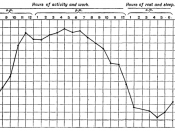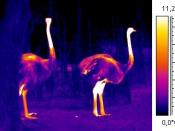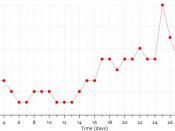MEASURINGBODY TEMPERATURE
As humans we are able to maintain our body temperature at a constant level, out with the temperature around us. Most of the time we are not conscious of our own body temperature. The control of body temperature comes from a special regulating centre in the brain, which balances the amount of heat, produced and lost by the body. Although body temperature remains fairly constant within the range of normal; which is 36 - 37.5 C, it must be remembered that variations occur between individuals at different stages of our lives and under different circumstances.
The aim of measuring body temperature is to identify any deviations from the range of normal, and that of the individual person's usual body temperature. It is usual to take a patient's temperature on admission to hospital. This is used as a baseline which if within the range of normal, other recordings are compared with.
If a deviation from normal is found, or is anticipated, the procedure is repeated at regular intervals.
Body temperature fluctuates during the first few hours of life; only after a day or so does the baby's body temperature begin to stabilise and, even then, only if the environment is kept warm. In newborn babies, control of body temperature is poor because the heat regulating system is not fully developed at birth. The body temperature in babies and young children can change quickly; for example, prolonged crying can cause the rise in their body temperature to above the range of normal. At the other end of the scale, temperature regulation is less efficient and older people can quickly suffer from the effects of extreme heat or cold. Hormones, exercise and food intake affect the body temperature also. There is a hormonal reason that can cause a slight rise...


